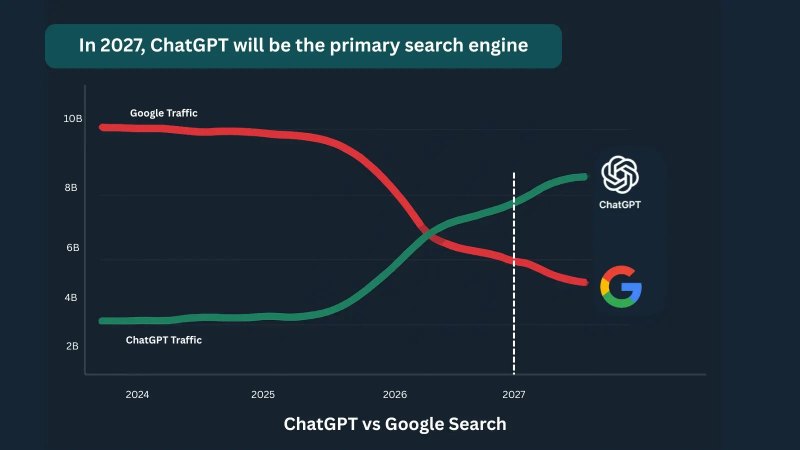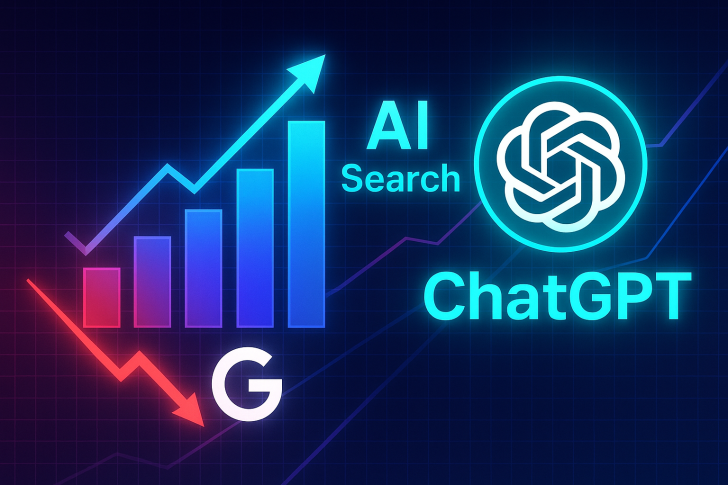⬤ OpenAI's ChatGPT is quickly becoming a serious competitor to Google in search. A recent chart projects ChatGPT traffic shooting up through 2026 and overtaking Google Search by 2027. The reason? People are changing how they look for information. Instead of opening a bunch of tabs and comparing results, they're getting one AI-powered answer that shapes what they buy right away.

⬤ The problem for most companies is simple: they're not showing up in ChatGPT's answers. Early movers, though, are already seeing results. Webflow reportedly saw a 614 percent traffic jump after tailoring content for AI search. Chime got three times more mentions across AI platforms using similar tactics. The key is understanding how AI reads and cites content, not just how traditional search engines rank it.
⬤ AirOps has now released the playbook these companies used. It includes tools for tracking brand visibility on ChatGPT and Perplexity, a 37-point checklist for creating AI-friendly content, and case studies showing real revenue impact. The chart drives the point home visually—Google's traffic trajectory flattens while ChatGPT's keeps climbing toward that 2027 tipping point.
⬤ This matters because AI search is rewriting the rules of online discovery. If ChatGPT really does become a primary search channel, businesses will need to optimize for AI models, not just Google's algorithm. It's a shift that could change marketing strategies, competitive dynamics, and how digital visibility gets built from the ground up.
 Eseandre Mordi
Eseandre Mordi

 Eseandre Mordi
Eseandre Mordi


